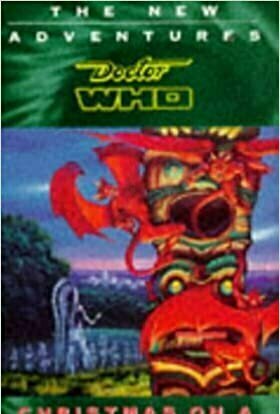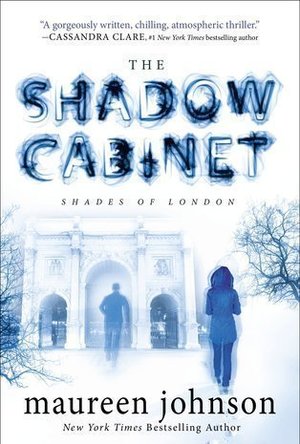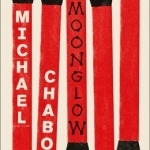Joe Goodhart (27 KP) rated Doctor Who: Christmas on a Rational Planet in Books
Nov 30, 2020
First, let me just write that this is clearly one of the more effed up New Adventures you will ever read. The things I witnessed within were horrible and chilling in a number of ways, far more so than I recall them being when I first read the book!
For those not aware, this was Lawrence Miles' (or, as some like to refer to him as, "Mad Larry") first published DW work. The seeds are planted, offering us glimpses at ideas, like Grandfather Paradox, which will be elaborated on further in his Eighth Doctor Adventures ALIEN BODIES and INTERFERENCE BOOKS 1 & 2.
Yes, as many have commented, his writing is not as polished or focused as it would be later in his career. However, that is not to say that it's rubbish or worthy of being snubbed. There are some damned good ideas here, both abstract and otherwise. The book requires a lot of focus, but it was worth it in the end.
I miss the writing that DOCTOR WHO used to have. Nothing in the 2005-onward NuWHO stories can hold a candle to this! And at least the Doctor's companions weren't all following him with lust-filled, puppy dog eyes like they were in the current stories!
If you are looking for something WHO-related, with a bit more bite and a whole lot more to tickle your brain, look no further than CHRISTMAS ON A RATIONAL PLANET!

Respiratory Medicine and Allergy
R.M. Leach, B.E. Lams and E. Hadley
Book
This book provides a selection of interesting problems for review by the hospital doctor or GP.Many...
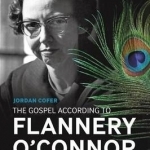
The Gospel According to Flannery O'Connor: Examining the Role of the Bible in Flannery O'connor's Fiction
Book
Jordan Cofer examines the influence of the Bible upon Flannery O'Connor's fiction. While there are...

Rainforest Tourism, Conservation and Management: Challenges for Sustainable Development
Book
Globally rainforests are under threat on numerous fronts, including clearing for agriculture,...
Heather Cranmer (2721 KP) created a post
Aug 20, 2021
Kristy H (1252 KP) rated The Shadow Cabinet (Shades of London, #3) in Books
Feb 13, 2018
Therefore, any nitpicks I have about anything in the book feeling rushed are no doubt of my own doing, as I manically flipped pages, wanting to find out what happened to Rory and the rest of the gang. When the series is over, I look forward to reading all the books again, and savoring them a bit more.
Needless to say, I loved this book. Definitely my favorite novel to date this year. I am sure Johnson's Shade of London series isn't for everyone, but I've fallen for American-based Rory, a transplant in London, who can now see ghosts. It sounds preposterous, but Johnson has made it work- and work well- in all three novels so far. I love Rory, I love her character, and I love the group of people she's come to surround herself in London - far away from the home she knows in New Orleans.
<i>*spoilers if you haven't read the first two books - which you should, immediately!*</i>
In book three, Rory is dealing with the grief of losing Stephen, as the team frantically tries to find his ghost. They are also trying to find her prefect, Charlotte, who was kidnapped by Rory's therapist, Jane. We learn more about Jane and her past involvement in an ancient cult and a likely string of murders. It all involves a much bigger plot involving London's ability to harness its dead, and the existence of a murky, rumored government organization who polices ghosts.
We also meet a new character in this novel, Freddie (a girl), who is quite bright, but of whom I still remain suspicious - silly, perhaps, but it's so hard to trust new people coming into the gang. We see more of Jerome, which is nice, and Boo and Callum, of course. There's actually less focus on actual ghosts than you'd think and more on some big conspiracies, but it all works, really well. The camaraderie of the team, and the way Johnson voices Rory is just lovely, and the book reads so well. Even what should be a crazy plot is made readable and believable through the lens of these developed characters.
As always, I'm left a bit bereft, waiting for the next book. (And, for the record, I finished the last few pages right before the twins woke up. I feel like that's fate, right?)
Acanthea Grimscythe (300 KP) rated I Am the Cheese in Books
May 16, 2018
Like most of Cormier's books, I Am the Cheese is set in the town of Monument, Massachusetts. It is a fictional setting based on the author's own home town. In this story, the main character is Adam Farmer and doubles as my pick for PopSugar's 2017 Reading Challenge as a book with an unreliable narrator, because young Adam Farmer is precisely that: unreliable.
Adam Farmer grows up with a rather complicated life: his family is part of the early stages of the Witness Protection Program. They are relocated to Monument after his father uncovers deeply rooted corruption among government officials and, as a result, testifies against them. Having been young at the time, Adam only knows his life as it now and goes about his day to day business as any boy his age would. He meets and falls in love with a girl named Amy and one day decides to skip school and bike to Rutterberg, Vermont so that he can deliver a gift to his father, who is currently in the hospital. As Adam tells us his story of visiting his father, we are simultaneously introduced to him in the future, where he is currently under psychiatric care. There, he is urged to recover his memories via sessions with Brint. During these sessions, the reader learns more Adam and his family.
I really can't say a whole lot more about the book other than that without revealing spoilers, but what I can say is that this book has more twists and turns with sharp jerks than those little mini-coaster rides at a theme park. You know, the ones that leave you with bruises instead of making you scream with glee? Even better, these twists are rather dark in nature - more so than I would have expected for a book labeled Young Adult back in the 70s. It's extremely rare for me to find myself questioning elements of story throughout an entire book, but I Am the Cheese succeeded in doing just that.
Another interesting element to I Am the Cheese, and one of the many traits it shares with Post-Modernism literature, is the use of several different styles of writing within its pages. While the book has alternating perspectives, there is a clear distinction when each perspective changes: first person is from Adam's point-of-view; the interview transcripts are from recordings of Brint and Adam speaking; the final style is third-person limited, with most of its focus centered directly on Adam and what goes on around him.
I was also surprised to learn, via my instructor, that the number Adam calls to try and reach Amy was actually Cormier's personal phone number. He had put it in the book so that if readers called it, they would be able to speak with him - particularly during less happy moments in their life. That alone is deserving of kudos.
I Am the Cheese is undoubtedly one of my favorite Young Adult books and, as a result, I definitely plan to read more of Cormier's books, especially since many of them have startlingly dark themes.

Epistemic Authority: A Theory of Trust, Authority, and Autonomy in Belief
Book
In this book Linda Trinkaus Zagzebski gives an extended argument that the self-reflective person is...
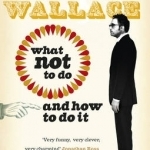
What Not to Do (And How to Do It)
Book
Danny is back with more hilarious true-life stories of hopeless modern manhood. A husband and now a...
Suswatibasu (1703 KP) rated Moonglow in Books
Nov 9, 2017
Despite the fragmented narrative and some aspects considered to be fictional truth, there's real heart and soul here which lifts this novel beyond merely the clever construction, giving it a haunting, poignant undertone.
For me the book is less about the grandfather, but the beautiful, damaged woman with whom he falls in love with. Profoundly affected by her experiences during the Second World War, the narrator's grandmother tells stories to shore up her own sense of self and to hold herself together in the wake of trauma.
While at times it can seem tedious, the author's writing carries it through, moving effortlessly from rambunctious humour to distressing scenes. It is a meditation on families and what constitutes a family when it's not based on blood, histories and accurate memories. A big-hearted and beautifully-written novel.
